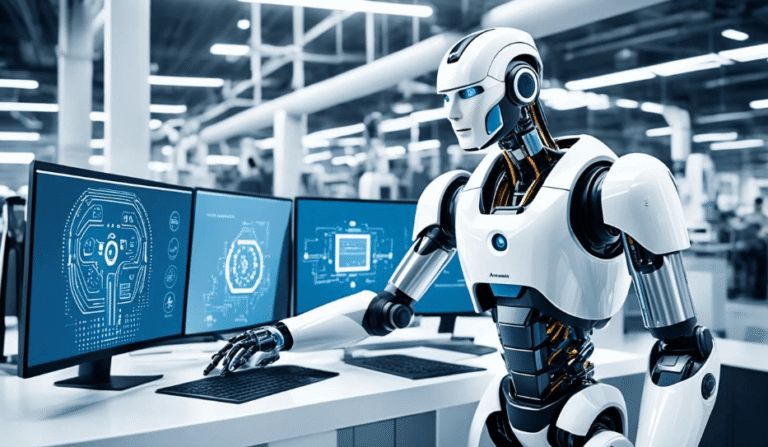Artificial Intelligence is fundamentally changing various industries, driving efficiencies and enhancing capabilities. In healthcare, it offers personalized treatment options and advanced predictive analytics. Financial services benefit from improved fraud detection and risk management. Manufacturing is evolving with smart technologies that streamline production. Retail is seeing a shift toward more personalized shopping experiences. As these transformations unfold, the implications for businesses and consumers alike raise critical questions about the future landscape of industry practices.
Transforming Healthcare With AI Innovations
How can artificial intelligence reshape the landscape of healthcare?
By leveraging personalized medicine and predictive analytics, AI enables tailored treatments that cater to individual patient needs. This technology analyzes vast data sets, identifying patterns that enhance diagnosis and treatment efficacy.
The shift towards data-driven decision-making not only empowers patients but also liberates healthcare providers, fostering a more efficient and responsive healthcare system.
See also: 10 Game-Changing Technologies That Will Shape the Future
Enhancing Financial Services Through Automation
The integration of artificial intelligence into various sectors is not limited to healthcare; it is also making significant strides in financial services.
Automation powered by AI enhances fraud detection and risk assessment capabilities, allowing institutions to respond swiftly to threats and streamline operations.
This technological advancement empowers financial entities to make informed decisions, ultimately fostering a more secure and efficient economic landscape.
Revolutionizing Manufacturing Processes
A remarkable transformation is underway in the manufacturing sector, driven by the adoption of artificial intelligence technologies.
Smart factories leverage AI to optimize production processes, enhancing efficiency and reducing waste.
Predictive maintenance ensures machinery operates at peak performance, minimizing downtime and lowering costs.
This integration of AI fosters innovation, empowering manufacturers to remain agile and competitive in an ever-evolving market landscape.
Redefining Customer Experience in Retail
As manufacturing processes become increasingly automated and efficient through AI, the retail sector is similarly experiencing a profound transformation in customer experience.
Enhanced algorithms now offer personalized recommendations, tailoring shopping experiences to individual preferences.
Furthermore, virtual shopping environments leverage immersive technologies, allowing consumers to browse and purchase products seamlessly.
This evolution empowers customers, fostering a sense of autonomy and satisfaction in their retail interactions.
Conclusion
In conclusion, the transformative power of artificial intelligence across various industries is undeniable, yet a theory posits that over-reliance on AI may lead to diminished human oversight and creativity. While AI enhances efficiency and accuracy, it is crucial to strike a balance between automation and human intuition. By fostering a symbiotic relationship between technology and human input, industries can harness the full potential of AI while safeguarding against potential pitfalls, ensuring sustainable innovation for the future.

